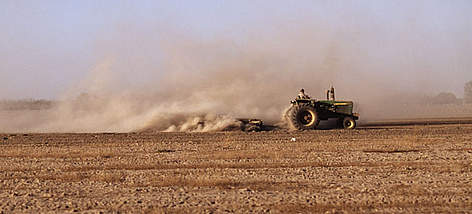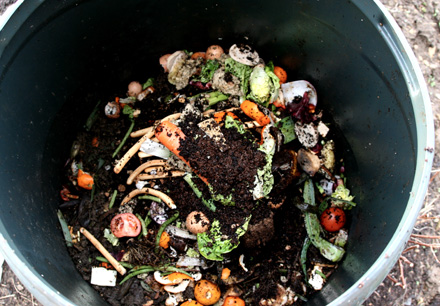
The Eco-Reps will be hosting the movie Dirt! at 7:00pm this Thursday, March 28th in Denny 317
This week, the Eco-Reps are hosting the movie Dirt!, which is all about… dirt!

There will be a special treat at the movie!
How is dirt both a non-renewable resource and polluter AND our most valuable source of fertility?
Without dirt, we would not have clothes, food, or shelters. The top layer of dirt (the humus layer) is comprised of living organisms including bacteria, fungi, algae, small vertebrates, arthropods, and insects; billions of organisms reside in a single teaspoon of soil.
The most well known dirt-related organism is probably the Earthworm. Over 1.4 million Earthworms can be found in a single acre of cropland, and 15 tons of soil pass through a single Earthworm annually.

Worms!
Dirt is considered to be a non-renewable resource. It takes more than 500 years to naturally produce 1 inch of topsoil. Rocks must be weathered down by wind, rain, and freeze/thaw cycles. Then, microorganisms must break down organic material. Sadly, the world has lost over a third of its topsoil in the past decade alone.
Topsoil is extremely important – and not just for growing plants. 10% of the world’s carbon dioxide emissions are stored in topsoil, along with 2,200 tons of water per acre. The ability to hold such water reduces the risk of floods. Pollutants decrease the soil’s ability to remove carbon from the atmosphere, hold clean water, and produce vegetation. Soil pollutants include pesticides and fertilizers used by farmers.
Over-farming has destroyed much of the remaining topsoil. In the United States, croplands lose over three billion tons of topsoil every year (making agriculture the single largest non-point polluter). In addition, farmers use over 300 different types of pesticides on the foods we eat, and much of these end up in the soil. These chemicals, industrialized farming, and the non-use of crop rotation has killed the soil. Infertile soil has lead to the suicides of over 200,000 farmers in rural India in the past decade (with their weapon of choice – ironically – being ingestion of pesticides).

Agriculture not only pollutes topsoil with pesticides and fertilizers, but increases the rate of erosion
But never fear! There are many ways to maintain and revitalize the soil, ranging from new agricultural practices to composting. Over half of the trash an American family throws away each year (about 1,200 lbs) is material that could be composted.

Sometimes, it takes people a while to figure out what type of composting works best for them, especially if they live in a more urban environment. Worms are often used, although they are much more successful on a larger scale than in a home environment.
Here at Dickinson, though, composting is easy! Food waste from Dining Services is all collected, ground up, and taken to the Dickinson College Farm on a daily basis. Over 800 pounds of food is taken to the Farm each day. There is also composting in the residence halls and some Special Interest Housing. The Eco-Reps maintain the compost bins, and empty them weekly into larger bins that are also taken to the farm.
A lot of different materials can be composted – but there are some general rules for composting in your residence hall:
- Any and all produce (fruits and vegetables) can and should be composted
- Meat, dairy, and eggs should not be composted in the residence halls (they start to smell)
- Any wood products, such as napkins, coffee stirrers, or egg cartons can be composted
- Coffee and tea (with the filters/bags!) are excellent for compost
- Dryer lint and eggshells can also be composted
- Anything that is non-natural (metal, wax, plastic, glass, Styrofoam etc) should not be put into the compost
To learn more about dirt and compost, come to a showing of the movie Dirt!, hosted by some of the Eco-Reps. There will be some delicious dirt cups – just like you remember from when you were little! Come talk to your Eco-Reps, watch a fabulous movie, and have some yummy snacks!
Dirt cups will be served at the movie on Thursday!
Join the Eco-Reps in Denny 317 at 7:00pm this Thursday, March 28th. We hope to see you there!
For more information, contact murphmar at dickinson.edu

















